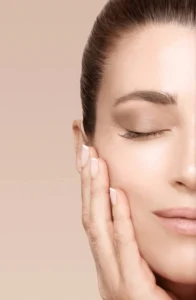In the pursuit of healthy and radiant skin, herbal skincare has emerged as a timeless and trusted approach. Rooted in natural ingredients and ancient traditions, herbal skincare offers a holistic way to nurture your skin without relying on harsh chemicals. Whether you’re seeking to treat acne, reduce wrinkles, or simply maintain a glowing complexion, incorporating herbal remedies into your skincare routine can be a game-changer.
In this article, we will explore the benefits, key ingredients, and tips for using herbal skincare to achieve the skin of your dreams.
What is Herbal Skincare?
Herbal skincare involves the use of plant-based ingredients, such as herbs, flowers, roots, and essential oils, to care for and treat the skin. These natural remedies have been used for centuries in traditional medicine systems like Ayurveda and Traditional Chinese Medicine (TCM). Unlike synthetic products, herbal skincare emphasizes gentle and sustainable solutions that work in harmony with the body.
Benefits of Herbal Skincare
- Gentle on the Skin:
- Herbal products are free from synthetic chemicals and harsh additives, making them suitable for sensitive and allergy-prone skin.
- Rich in Nutrients:
- Herbs are packed with vitamins, antioxidants, and minerals that nourish the skin and promote healing.
- Environmentally Friendly:
- Natural ingredients are biodegradable and sustainable, reducing the environmental impact of your skincare routine.
- Holistic Healing:
- Many herbs offer anti-inflammatory, antimicrobial, and soothing properties that address the root causes of skin issues.
- Customizable:
- Herbal skincare allows you to tailor remedies to your specific skin type and concerns.

Key Herbal Ingredients and Their Benefits
- Aloe Vera:
- Hydrates and soothes irritated skin.
- Reduces redness and promotes healing of wounds and sunburns.
- Chamomile:
- Calms inflammation and reduces redness.
- Ideal for sensitive or acne-prone skin.
- Turmeric:
- Contains curcumin, a powerful antioxidant and anti-inflammatory compound.
- Brightens skin tone and reduces dark spots.
- Green Tea:
- Rich in antioxidants that fight free radicals and prevent premature aging.
- Helps reduce puffiness and soothes irritated skin.
- Neem:
- Known for its antibacterial and antifungal properties.
- Treats acne and prevents breakouts.
- Rosehip Oil:
- Packed with vitamins A and C to promote skin regeneration.
- Reduces the appearance of scars and fine lines.
- Lavender:
- Soothes and calms the skin.
- Reduces acne and prevents blemishes.
- Honey:
- A natural humectant that locks in moisture.
- Has antibacterial properties that prevent and treat infections.
- Witch Hazel:
- Acts as a natural astringent, reducing excess oil and tightening pores.
- Soothes inflammation and minimizes redness.
- Calendula:
- Promotes wound healing and reduces skin irritation.
- Hydrates and softens the skin.

Herbal Skincare for Different Skin Types
- Dry Skin:
- Ingredients to Use: Aloe vera, rosehip oil, honey, calendula.
- Tips: Opt for hydrating masks and oils to lock in moisture.
- Oily Skin:
- Ingredients to Use: Witch hazel, neem, green tea, turmeric.
- Tips: Use lightweight gels and toners to control oil without stripping moisture.
- Sensitive Skin:
- Ingredients to Use: Chamomile, lavender, calendula.
- Tips: Avoid harsh exfoliants and focus on soothing, gentle formulations.
- Combination Skin:
- Ingredients to Use: Aloe vera, green tea, turmeric, honey.
- Tips: Address different zones with targeted treatments, like hydrating dry areas and mattifying oily regions.
- Acne-Prone Skin:
- Ingredients to Use: Neem, turmeric, tea tree oil, witch hazel.
- Tips: Use antibacterial and anti-inflammatory herbs to reduce breakouts and prevent scarring.

DIY Herbal Skincare Recipes
- Hydrating Aloe Vera Mask:
- Ingredients: 2 tablespoons aloe vera gel, 1 teaspoon honey, a few drops of rosehip oil.
- Instructions: Mix ingredients, apply to the face, leave for 20 minutes, and rinse off with lukewarm water.
- Turmeric Brightening Scrub:
- Ingredients: 1 teaspoon turmeric, 2 tablespoons gram flour, 2 tablespoons yogurt.
- Instructions: Mix into a paste, gently scrub in circular motions, and rinse off.
- Green Tea Toner:
- Ingredients: 1 cup brewed green tea (cooled), a few drops of tea tree oil.
- Instructions: Store in a spray bottle and use as a refreshing toner throughout the day.
- Chamomile Soothing Cream:
- Ingredients: 1/4 cup shea butter, 2 tablespoons chamomile-infused oil.
- Instructions: Whip the ingredients together and store in a glass jar.
How to Incorporate Herbal Skincare into Your Routine
- Cleanse:
- Use a gentle herbal cleanser with aloe vera or chamomile.
- Tone:
- Apply a toner infused with witch hazel or green tea to balance the skin’s pH.
- Moisturize:
- Choose a hydrating cream or oil with rosehip or calendula.
- Mask:
- Treat your skin weekly with masks tailored to your skin’s needs.
- Sun Protection:
- Herbal sunscreens with natural zinc oxide and plant extracts provide a protective barrier.
Common Mistakes to Avoid
- Using Too Many Products:
- Overloading your skin with various ingredients can cause irritation.
- Ignoring Patch Tests:
- Always test new products on a small area to ensure compatibility.
- Expecting Instant Results:
- Herbal skincare works gently over time, so patience is key.
- Skipping Sunscreen:
- Even with herbal remedies, UV protection is essential to prevent damage.
Conclusion
Herbal skincare is more than just a trend; it’s a return to nature’s wisdom for achieving healthy, radiant skin. By understanding your skin’s unique needs and harnessing the power of plant-based ingredients, you can create a personalized skincare routine that’s both effective and sustainable. Whether you choose ready-made herbal products or DIY remedies, the journey to glowing skin begins with embracing the natural goodness of herbs.













